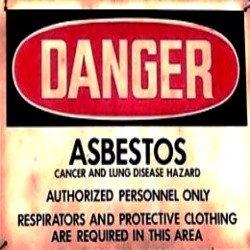Mississippi Mesothelioma Victims Center Offers a Navy Veteran with Mesothelioma in Mississippi Direct Access to Attorney Erik Karst of Karst von Oiste-Get a Full Explanation of How the Compensation Process Works



JACKSON , MISSISSIPPI , USA, September 18, 2020 /EINPresswire.com/ -- The Mississippi Mesothelioma Victims Center says, "If you or your loved one is a Navy Veteran and he has just been diagnosed with mesothelioma anywhere in Mississippi-rather than ordering a 'free' booklet or calling a law firm call center-please call 800-714-0303 for direct access to attorney Erik Karst of the law firm of Karst von Oiste. Erik Karst is one of the nation's most skilled mesothelioma attorneys and he and his colleagues at Karst von Oiste are responsible for over a billion dollars in financial compensation for Navy Veterans and people with mesothelioma in Mississippi and nationwide.
"We know that because of the Coronavirus many Navy Veterans who have mesothelioma or their family members might think hiring a local car accident attorney to handle a compensation claim for this rare cancer caused by asbestos exposure might sound like a good idea. If you are a Navy Veteran with mesothelioma in Mississippi and or their family member-please call attorney Erik Karst at the law firm of Karst von Oiste at 800-714-0303. Mesothelioma compensation claims for US Navy Veterans can frequently exceed a million dollars-if the lawyers you hire know what they are doing. Please don't-roll the dice on mesothelioma compensation if you are a Navy Veteran. The average age for a person with mesothelioma in the US is 72 years old." www.karstvonoiste.com/
For the best possible mesothelioma treatment options in Mississippi the Mississippi Mesothelioma Victims Center strongly recommends the following heath care facility with the offer to help a diagnosed victim, or their family get to the right physicians at this hospital:
* University of Mississippi Medical Center Jackson, Mississippi: https://www.umc.edu/cancerinstitute/
The Mississippi Mesothelioma Victims Center’s initiative is a service available to any diagnosed victim of mesothelioma throughout Mississippi in every community such as Jackson, Gulfport, Southaven, Hattiesburg, Biloxi, and Tupelo.
https://Mississippi.MesotheliomaVictimsCenter.Com
High risk work groups for exposure to asbestos in Mississippi include Veterans of the US Navy, power plant workers, shipyard workers, oil refinery workers, factory workers mill workers, plumbers, electricians, welders, auto mechanics, machinists, and construction workers. Typically, the exposure to asbestos occurred in the 1950’s, 1960’s, 1970’s, or 1980’s. www.karstvonoiste.com/
According to the CDC the states indicated with the highest incidence of mesothelioma include Maine, Massachusetts, Connecticut, Maryland, New Jersey, Pennsylvania, Ohio, West Virginia, Virginia, Michigan, Illinois, Minnesota, Louisiana, Washington, and Oregon. However, mesothelioma does happen in Mississippi.
For more information about mesothelioma please refer to the National Institutes of Health’s web site related to this rare form of cancer: https://www.cancer.gov/types/mesothelioma.
Michael Thomas
Mississippi Mesothelioma Victims Center
+1 800-714-0303
email us here
EIN Presswire does not exercise editorial control over third-party content provided, uploaded, published, or distributed by users of EIN Presswire. We are a distributor, not a publisher, of 3rd party content. Such content may contain the views, opinions, statements, offers, and other material of the respective users, suppliers, participants, or authors.




